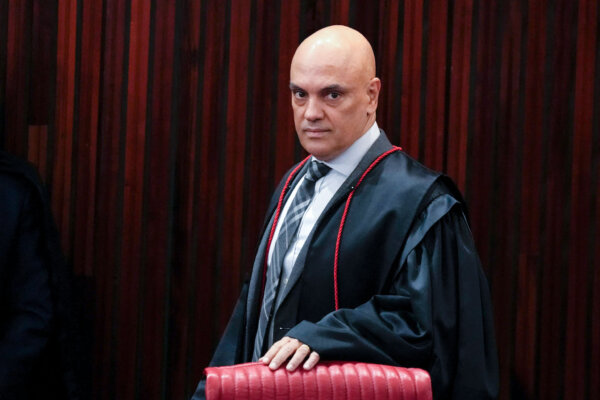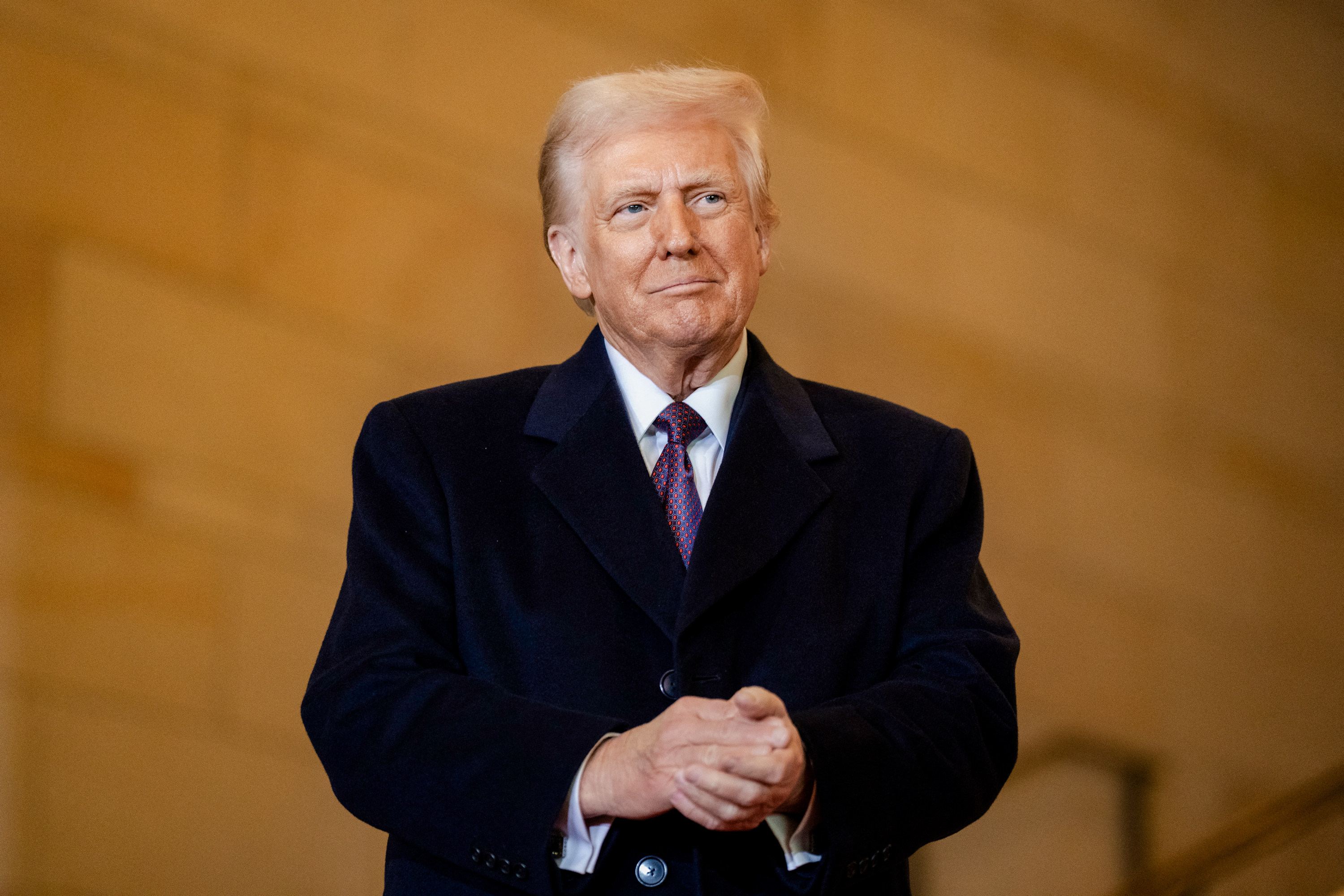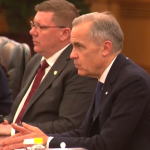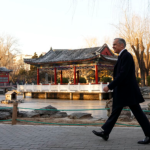Brazil’s Supreme Court stated that it rejected U.S. attempts to challenge its authority.
 The U.S. Treasury Department stated on July 30 that it has sanctioned Brazilian Supreme Court Justice Alexandre de Moraes, accusing him of targeting political opponents and suppressing free speech.
The U.S. Treasury Department stated on July 30 that it has sanctioned Brazilian Supreme Court Justice Alexandre de Moraes, accusing him of targeting political opponents and suppressing free speech.
De Moraes is overseeing the case against former President Jair Bolsonaro, who is accused of involvement in an alleged coup attempt on Jan. 8, 2023. The Supreme Court justice
imposed restrictions on the former president on July 18. The restrictions included an ankle monitor, a ban on social media use, and no contact with foreign embassies.
The sanction comes amid escalating tensions between Washington and Brasília over the treatment of Bolsonaro, with the Trump administration tying trade policy and high tariffs on Brazilian imports to concerns over censorship in the country.
The U.S. Treasury Department
said in a statement that the sanctions were issued by its Office of Foreign Assets Control under Executive Order
13818, issued during President Donald Trump’s first term, which “builds upon and implements the Global Magnitsky Human Rights Accountability Act and targets perpetrators of serious human rights abuses.”
“Alexandre de Moraes has taken it upon himself to be judge and jury in an unlawful witch hunt against U.S. and Brazilian citizens and companies,” Treasury Secretary Scott Bessent said in the statement.
“De Moraes is responsible for an oppressive campaign of censorship, arbitrary detentions that violate human rights, and politicized prosecutions, including against former President Jair Bolsonaro. Today’s action makes clear that Treasury will continue to hold accountable those who threaten U.S. interests and the freedoms of our citizens.”
U.S. Secretary of State Marco Rubio
said on July 30 that the judge “abused his authority by engaging in a targeted and politically motivated effort designed to silence political critics.”
Rubio also accused the justice of issuing secret court orders to compel online platforms, including U.S.-based social media companies, to ban accounts for posting protected speech.
In a July 31 statement
posted to X, Brazil’s Supreme Court said it would not deviate from its role of “upholding the Constitution and the country’s laws, which guarantee all those involved due process and a fair trial.”
The Supreme Court stated that the “prosecution of crimes that constitute a serious attack on Brazilian democracy is the exclusive jurisdiction of the country’s judiciary, in the independent exercise of its constitutional role.”
“A criminal case is currently underway before the Court, in which the Prosecutor General of the Republic has charged a group of individuals—including a former President of the Republic—with a series of crimes, among them the crime of attempted coup d’état,” the court stated.
“During the investigation, strong evidence was found indicating the commission of these crimes, including a plan that involved the assassination of public officials.”
The court stated that it expressed “solidarity with Justice Alexandre de Moraes.”
Trump and the Brazilian government have been
increasingly at odds over the handling of Bolsonaro’s ongoing trial related to an alleged coup to overturn the country’s 2022 presidential election.
On July 17, Trump sent a letter to Bolsonaro expressing his “sincere hope that the government of Brazil changes course, stops attacking political opponents, and ends its ridiculous censorship regime.”
Trump
signed an order on July 30, implementing an additional 40 percent tariff on imports from Brazil, bringing the total tariff amount on the country to 50 percent.
The move is designed to “address the Government of Brazil’s unusual and extraordinary policies and actions harming U.S. companies, the free speech rights of U.S. persons, U.S. foreign policy, and the U.S. economy,”
according to a White House fact sheet.
In August 2024, de Moraes
ordered telecom providers to block access to X, escalating a high-profile dispute with the platform’s owner, Elon Musk, over court‑mandated removals of accounts that the justice accused of spreading “misinformation.”
X later shut down operations in Brazil, saying authorities threatened to jail its legal representative.
De Moraes
authorized the reinstatement of the social media platform in October 2024 after the company met various legal requirements and complied with previous judicial orders.
Savannah Hulsey Pointer, Joseph Lord, Emel Akan, and Austin Alonzo contributed to this report.
![]() The U.S. Treasury Department stated on July 30 that it has sanctioned Brazilian Supreme Court Justice Alexandre de Moraes, accusing him of targeting political opponents and suppressing free speech.
The U.S. Treasury Department stated on July 30 that it has sanctioned Brazilian Supreme Court Justice Alexandre de Moraes, accusing him of targeting political opponents and suppressing free speech.










